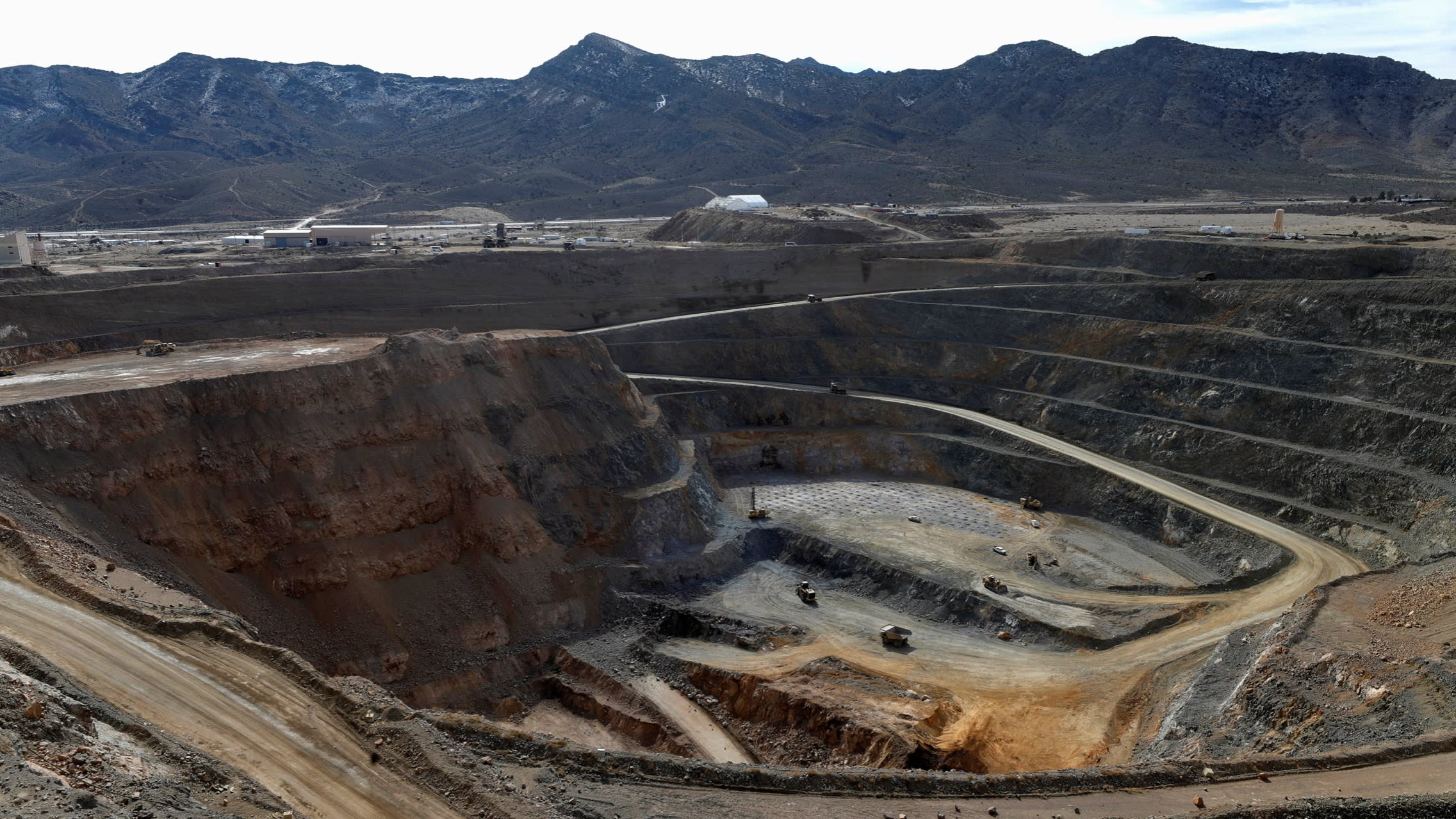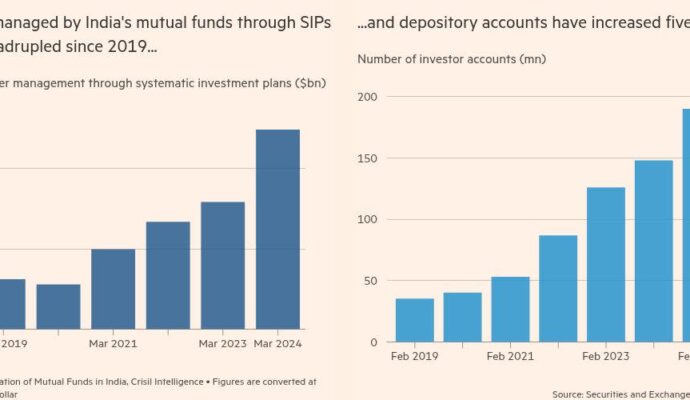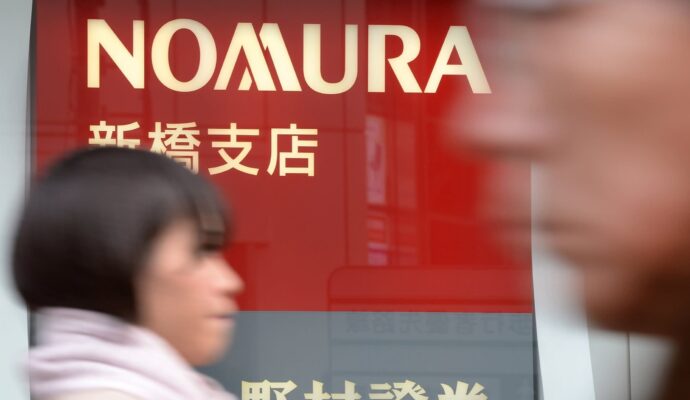
Unlock the Editor’s Digest for free
Roula Khalaf, Editor of the FT, selects her favourite stories in this weekly newsletter.
The US miner central to America’s efforts to build a domestic rare earths supply chain has halted shipments of its concentrates to China after being caught in the trade war between the two countries.
Las Vegas-based MP Materials has emerged as the US’s best hope for overcoming China’s stranglehold on output of rare earths, a group of minerals vital in a swath of high-tech industries. Its New York-listed shares have risen more than 60 per cent this year, giving the group a $4.3bn market capitalisation.
But the company still sold most of its output of rare earth concentrate to China, the world’s main processing and separation centre for such materials.
Those sales have come to a halt, three people familiar with the matter told the Financial Times. One said China’s retaliatory 125 per cent tariffs on US products had made the sales uneconomical.
MP’s sales to its Chinese state-backed partner Shenghe Resources, a major rare earth group, accounted for about 80 per cent of its $204mn in revenues last year, according to filings. Shenghe buys MP’s concentrate at market prices less import duties and other costs, filings show.
Gracelin Baskaran, a critical minerals expert at the Center for Strategic and International Studies, said there was a question over whether the US government would step in to support MP.
“They are going to be in a tough spot when they can’t export what they produce,” she said.
After being asked for comment, MP Materials put out a statement acknowledging it had ceased shipments to China.
“Selling these critical materials under 125 per cent tariffs is neither commercially rational nor aligned with the national interest,” the miner said.
MP added it had invested nearly $1bn to restore a full rare earth supply chain in the US. It said it was now using a refinery in California to process half of its production output and selling almost all of that material outside China.
The company said it was “also in close contact with federal leaders and encouraged by their determination to support American industry”.
Shares in the company fell more than 4 per cent on Thursday. MP reported a net loss of $65mn last year and had $851mn in cash and $909mn of long-term debt at year end.
Shenghe declined to comment.
MP is racing to separate and process more of its rare earths in the US, feeding into a permanent magnet factory in Texas just coming online and eventually providing the group a full domestic value chain for its output.
Morgan Stanley has previously estimated that MP’s concentrate sales to China would fall to 40 per cent of revenue this year, from 70 per cent, as its processing and Texas plant come online.
Morgan Stanley analyst Carlos De Alba said he saw “two opposite forces at play on the stock” with MP’s increasing geopolitical importance making it a more valuable asset, offset against the tariffs, which “will negatively impact financial results in the short term”.
MP’s chief executive James Litinsky told investors in February: “The United States of America now has a champion in MP that can provide a domestic supply chain solution for rare earth magnets.”
The group’s permanent magnet factory now faces another significant China challenge. So far, MP has been able to separate and process light rare earths but not the equally essential heavy rare earths, particularly dysprosium and terbium, needed to make high-performance permanent magnets and which go into F-35 fighter jets, cars, MRI machines and other electronics.
Beijing’s April 4 export controls have almost entirely halted outbound shipments of heavy rare earths as officials put in place a licensing regime, Chinese market participants say.
Yang Jie, an export control lawyer at Chinese firm Huiye, said he expected it would take six months to put in place such a regime. “There is no hope for rare earth exports,” he said.
MP’s timeline for separating heavy rare earths is unclear. Australian mining group Lynas Rare Earths has a Malaysian heavy rare earth separation plant coming online mid-year and is building a similar facility in Texas.
For the time being, China is the world’s only source of separated heavy rare earths, analysts say.
“The US has two choices — we’re going to have a supply chain disruption or we can negotiate,” said Baskaran of the CSIS. “It’s going to be painful.”
“China went for our deepest vulnerability. They didn’t go for the one that we’re highly vulnerable in, just the one we’re completely vulnerable in,” she said.
MP said it was “rapidly advancing our heavy rare earth capabilities” and remained confident in hitting its magnet production timeline and fulfilling its commercial commitments.
Additional reporting by Camilla Hodgson, Cheng Leng and Nic Fildes

